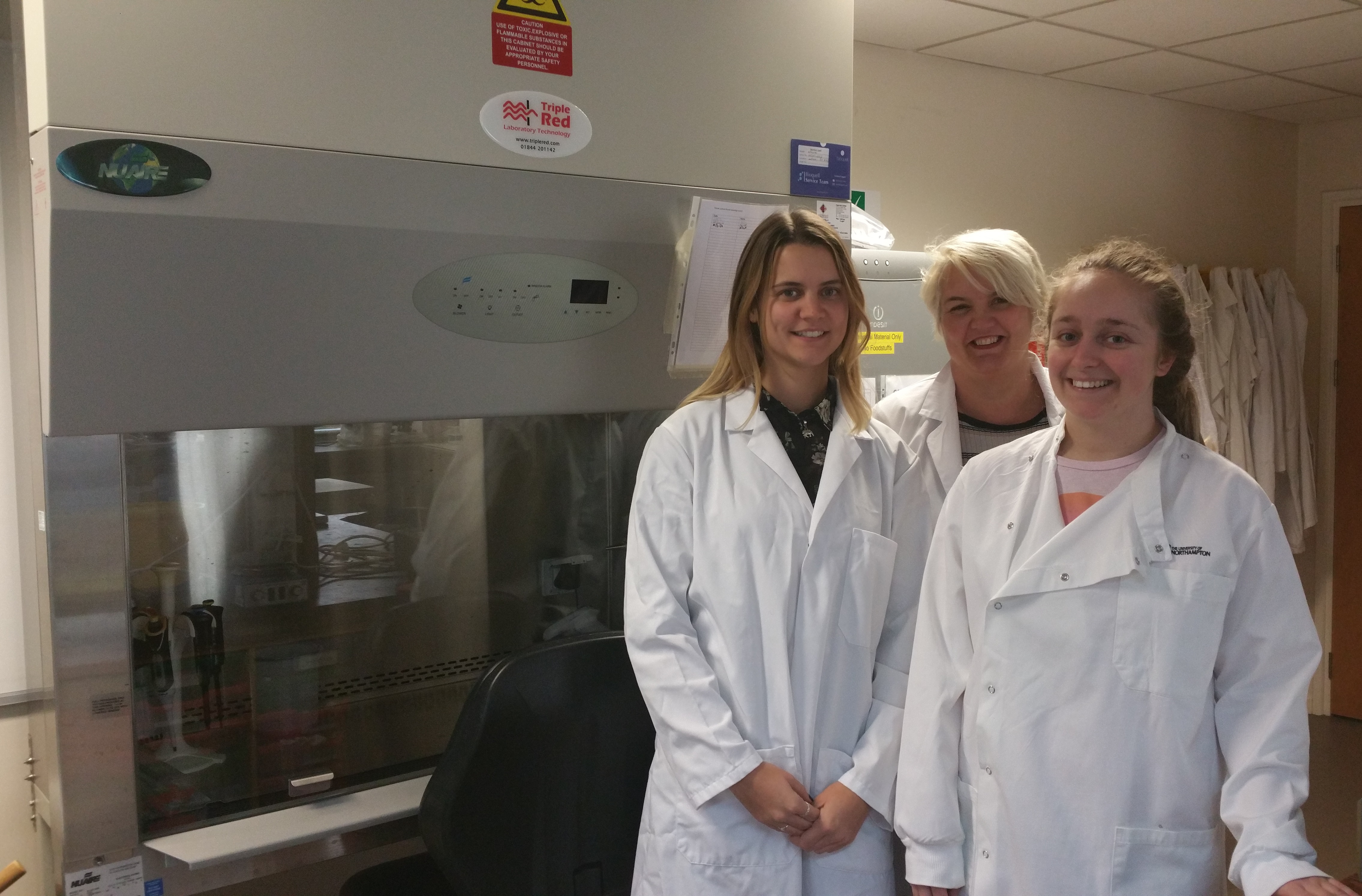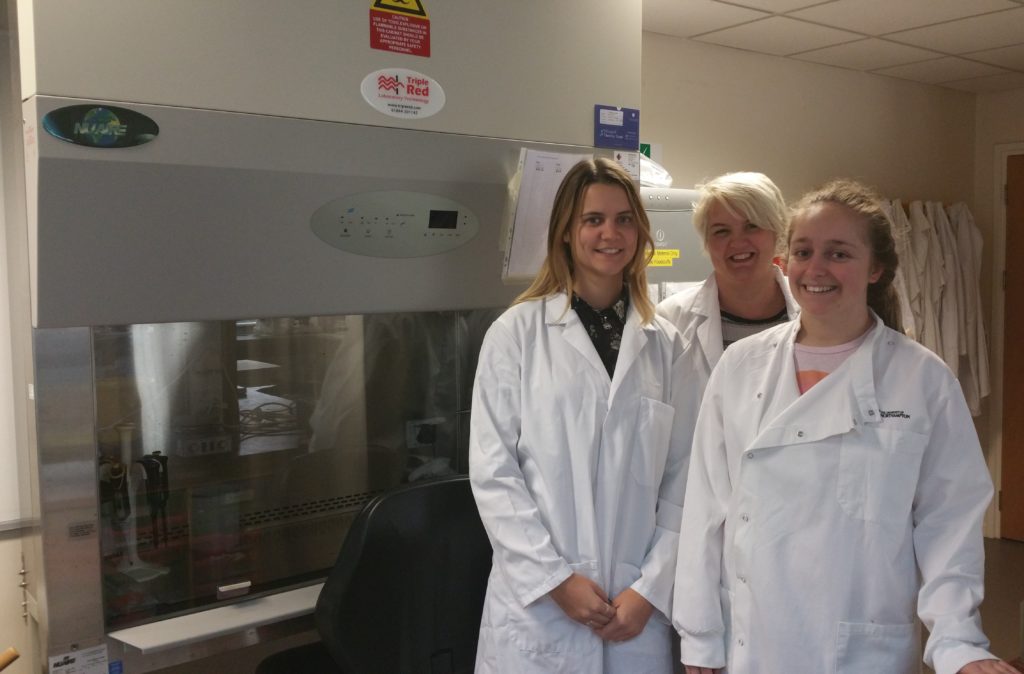What do three research students think of the Human Bioscience course at University of Northampton?
Date 7.12.2017
7.12.2017
The next generation of science stars joined us as ‘MPhil’ (Masters of Philosophy) research students recently, working with our Human Bioscience team’s Dr Karen Anthony. Here they tell us about what they’ve been doing.
See our website for more about the Human Bioscience course at the University of Northampton.
Amanda Ash
I have been a student at Northampton for over 3 years now…so why am I still here?!
Well firstly, the enthusiastic staff, who have a wide range of experience and ongoing research in their professional fields.
The teaching staff involve you in their work, giving you the chance to work on your own project in an area that very few know about, an area you want to explore. My MPhil supervisor, Dr Karen Anthony, made that happen for me.
Deciding to study an MPhil may not be everybody’s cup of tea, but for someone who loves lab work and a lot of tea, I knew this was the best post-graduate route for me to take, especially with an amazing supervisor. The MPhil trains you as a competent researcher in the lab, equipping you with skills, some of which expand beyond your research topic so that once you graduate, you are able to go into projects that you haven’t worked on before.
My work is investigating Duchenne muscular dystrophy and the corresponding neurological symptoms, using patient-derived cell lines, looking at cell growth and the associated protein, dystrophin.
So far I have done some RNA and protein extractions and I am about to do some scratch assays, with an aim to complete all the experiments for the 4 patient cell lines, before I continue in any others. I have done some of these experiments previously in my dissertation and internship, so I am really excited to be back in the lab.

MPhil Human Bioscience students (from l-r) Charlotte Brooks, Catherine Jarvis and Amanda Ash.
Katherine ‘Kat’ Jarvis
I’m a mother of 5 and never imagined that at 46 I would complete a BSc in Human Bioscience and would embarking on more learning!
My reason for returning to education is my daughter who has a life-limiting and disabling condition called Pyruvate Dehydrogenase Complex Deficiency.
I came to The University of Northampton because they offered the course that was relevant to my chosen study path.
The reason I chose to return to UoN for my MPhil was multi-factorial, location (as juggling a family and University is very time consuming), my PAT and the working relationship and understanding that we had built over the last 3 years, and the investment that I knew UoN is and continues to make in the infrastructure and the future with the move to the Waterside campus. The teaching framework gold award cemented for me what I already knew, that UoN has great staff who really do want the best outcome for their students.
My MPhil research is in mitochondrial bioenergetics, as my interest in a real-world application is the impact that the ketogenic diet has on the mitochondria. I hope to continue to the field of research as a career and think that UoN has and will continue to equip me for the journey to come.
Charlotte Brookes
I have been busy, looking at gene variants and their association with Achilles Tendinopathy and Achilles Tendon Rupture in an attempt to further the understanding of risk factors associated with tendon pathology.
This research could aid the scientific community in better understanding the pathology and to help establish more accurate rehabilitation for patients suffering from Achilles tendinopathy and/or rupture.
Unfortunately, I can’t say anymore as I am at a crucial time in my research and have strict science-confidentiality rules to adhere to!